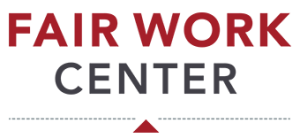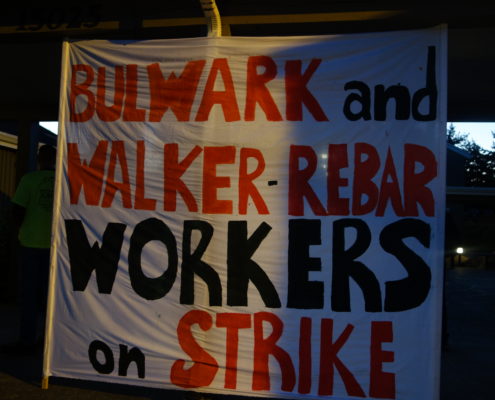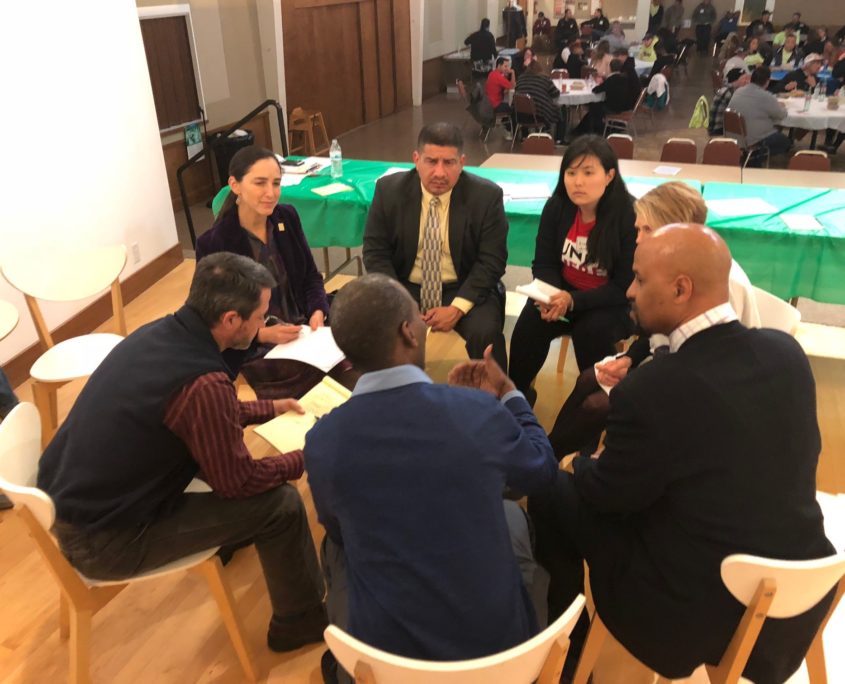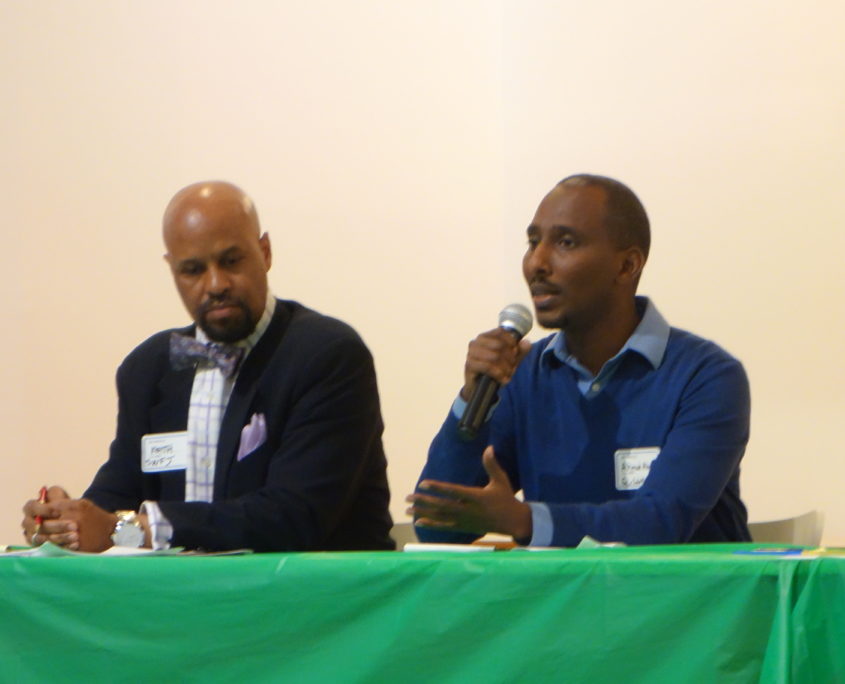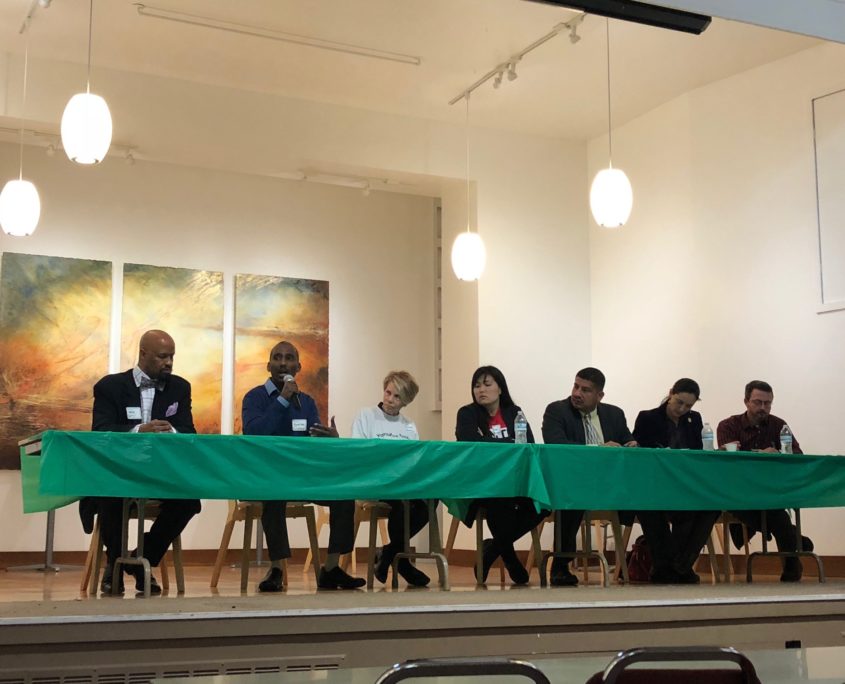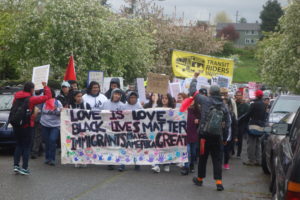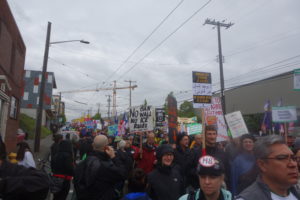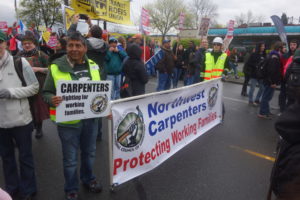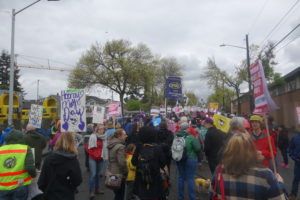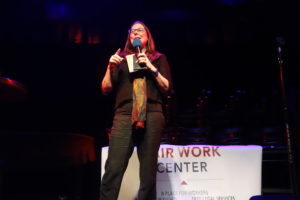INTERVIEW WITH DAN JOHNSON of BRESKIN JOHNSON & TOWNSEND
Why did you choose to practice employment law?
 Dan Johnson: “I worked at the Employment Law Center in San Francisco in law school, and also volunteered at the workers’ rights legal clinic at my school in Berkeley California, where I went to law school. From there, I knew I wanted to do employment law, and I knew I wanted to work on the employee side. My values have always been to look out for the little guy.
Dan Johnson: “I worked at the Employment Law Center in San Francisco in law school, and also volunteered at the workers’ rights legal clinic at my school in Berkeley California, where I went to law school. From there, I knew I wanted to do employment law, and I knew I wanted to work on the employee side. My values have always been to look out for the little guy.
What are some challenges you see for workers today?
DJ: “So often the employer has all the resources on their side. What we see happening more and more in cases we represent is employers using their resources to take unreasonable stands, dig in their heels and stretch things out as long as possible, trying to wear down the employee or employees making a claim. These cases impact employees’ entire livelihood – it’s about their jobs and how they support their families – but they get fought for a long, long time. And I think sometimes justice delayed is justice denied.”
What change would you like to see to improve the welfare of all working people?
DJ: So many things! This legal clinic is one. I think there are dozens of people walking around in every neighborhood in this city that every day have some sort of legal issue in their workplace. Most of them probably never get any legal support. So community clinics like this one are great opportunities for people to get their questions answered and hopefully to get some relief for wrongs they experienced. Another is the minimum wage. Thankfully we’ve raised it here in Seattle and now Washington, but we’ve got a long way to go in most places around the country.
Why does your firm support Fair Work Center?
DJ: “Since I moved back to Seattle after law school, I really wanted to see something like the Worker’s Rights Clinics in California started here. But I couldn’t do it on my own and was too busy trying to build my own firm. So, I am really excited it has finally happened here with the Fair Work Legal Clinic.
There are so many people walking around with questions about their work or problems in their workplace that could probably be resolved if the right connections were made. I think that’s what the Fair Work Legal Clinic is doing, connecting people with answers and solutions to the problems they are having at work. And the bigger impact the Legal Clinic can have is that employers may be more inclined to do the right thing knowing that their employees now know their rights and have access to free legal services.”
INTERVIEW WITH TOBY MARSHALL of TERRELL MARSHALL LAW GROUP
Why did you choose to practice employment law?
 Toby Marshall: “I grew up in a working-class family, and I know what it’s like to live paycheck to paycheck. I also know that employers hold a great deal of power over employees. These circumstances leave many workers vulnerable to wage and hour abuses. One of my first cases as a lawyer involved a large company that regularly required its employees to work several hours without pay each week. The employees tolerated this for years because they were afraid to lose their jobs, which would mean losing their ability to put food on the table each day and pay rent each month. I practice employment law to fight for those who find themselves in this situation. Nobody should have to work without pay for fear of being unable to provide for his or her family.”
Toby Marshall: “I grew up in a working-class family, and I know what it’s like to live paycheck to paycheck. I also know that employers hold a great deal of power over employees. These circumstances leave many workers vulnerable to wage and hour abuses. One of my first cases as a lawyer involved a large company that regularly required its employees to work several hours without pay each week. The employees tolerated this for years because they were afraid to lose their jobs, which would mean losing their ability to put food on the table each day and pay rent each month. I practice employment law to fight for those who find themselves in this situation. Nobody should have to work without pay for fear of being unable to provide for his or her family.”
What are some challenges you see for workers today?
TM: “Workers face a variety of challenges, but one that seems to be on the rise is mandatory arbitration. Increasingly, employers are requiring workers to sign agreements with arbitration clauses that bar class and collective actions. The obvious goal is to prevent workers from banding together, to bar them from the courthouse, and to keep complaints confidential and violations hidden. Some courts have found such agreements to be illegal, saying they violate the right of employees to engage in concerted activity. Other courts, however, have allowed these agreements to stand (and ultimately serve as a get-out-of-jail-free card for employers).”
What change would you like to see to improve the welfare of all working people?
TM: “Greater access to justice. Wage theft is a serious problem in this country, affecting workers in all industries. One large-scale study found that two-thirds of the employees who were surveyed experienced at least one wage-and-hour violation in the previous workweek. The average wage loss per worker was 15 percent. Class and collective actions are helpful, but more resources are needed to assist individual employees who are being cheated on pay or subjected to unlawful working conditions. We are fortunate to live in a state that has strong wage and hour laws, but those laws don’t enforce themselves. Workers need advocates, whether it’s individual attorneys, agencies like Washington’s Department of Labor and Industries or Seattle’s Office of Labor Standards, or legal aid organizations like the Fair Work Center.”
Why does your firm support Fair Work Center?
TM: “The Terrell Marshall Law Group wants to support access to justice and to us, that’s what the Fair Work Center is all about. Our class action practice helps large groups of employees, but we know that’s only the tip of the iceberg. There are many other workers out there who aren’t getting any help whatsoever. By educating workers about their rights and providing them with greater access to the courts, the Fair Work Center is making it more likely that employers will do the right thing and follow the law.”
INTERVIEW WITH LINDSAY HALM, JAMAL WHITEHEAD & ADAM BERGER of SCHROETER GOLDMARK & BENDER
Interviewing: Lindsay Halm, Jamal Whitehead, and Adam Berger from Schroeter Goldmark & Bender
This interview was conducted over lunch with three attorneys from SGB’s employment law group.
Questions:
Why did you choose to practice employment law?
 Lindsay Halm: At some point during law school I became convinced that I was going to be a public defender or a plaintiff’s attorney. I wanted my career to focus on helping people who really need it. I am truly thankful to get to do the work that I do.
Lindsay Halm: At some point during law school I became convinced that I was going to be a public defender or a plaintiff’s attorney. I wanted my career to focus on helping people who really need it. I am truly thankful to get to do the work that I do.
Jamal Whitehead: As someone who is part of several protected classes, I want to make sure the playing field is fair for all.
Adam Berger: Marty Garfinkel at our firm pulled me into employment law. I became really involved in the Brink’s Home Security case and have been hooked ever since.
What are some challenges you see for workers today?
Discussion among all:
The changing nature of work in our country today is one of the biggest challenges facing workers, and we see that taking many shapes: misclassification of workers (when employers classify workers as independent contractors instead of employees to avoid having to comply with labor standards employees are entitled to), more part-time jobs with little to no benefits, and the rise of the gig economy. The nature of work today makes it nearly impossible for low-wage workers to build a better future for their families and achieve the ever-elusive American dream.
Another issue we see is increasing fragmentation of the workplace. Many people don’t know who their employer is or who they technically work for, given the prevalence of subcontracting today. If you clean the offices at a tech firm downtown, is your employer the tech firm or the contractor they hired to clean? It is incredibly difficult to hold your employer accountable to following the law if you don’t know who, exactly, is your employer.
We’ve also seen a steep decline of unionized workforces in the last few decades, which leads to depressed wages for both union and no

n-union workers. It also means, of course, that workers don’t have the power they need to negotiate better wages and working conditions.
What change would you like to see to improve the welfare of all working people?
Discussion among all:
We really see Seattle as the testing ground for implementing and enforcing multiple cutting edge laws aimed at lifting up and protecting workers. We hope Seattle continues to lead the country in this regard.
Everyone in our employment group recognizes that there is a huge outstanding need to support the high volume of small claims that many private firms like ours do not have the capacity to take on. Workers need greater access to justice, so the work of Fair Work Center and the Seattle Office of Labor Standards is incredibly important.
Why does your firm support Fair Work Center?
Discussion among all:
We support Fair Work Center because it is helping to fill this hole in our local legal community by supporting Seattle in implementing its new labor laws and providing support to workers with small claims and other issues on the job. And the fact that Fair Work Center provides hands-on training and mentoring to students at our local law schools helps shape the future generation of lawyers into allies and advocates for workers. Bravo!
INTERVIEW WITH MIKE SUBIT of FRANK FREE SUBIT & THOMAS
Why did you choose to practice employment law?
 Going into law school, I knew I wanted to practice some sort of civil rights or constitutional law when I got done. At the time, I would have guessed I’d go into a career with someplace like the ACLU. And I actually did work for the ACLU for a couple of years early in my career, but it was as a summer associate at a labor and employment firm in the Bay Area that I got a taste for plaintiff-side employment law. So I took more labor and employment courses and by the time I was done with law school and after two federal clerkships, I knew it was the area of law I wanted to focus my career.
Going into law school, I knew I wanted to practice some sort of civil rights or constitutional law when I got done. At the time, I would have guessed I’d go into a career with someplace like the ACLU. And I actually did work for the ACLU for a couple of years early in my career, but it was as a summer associate at a labor and employment firm in the Bay Area that I got a taste for plaintiff-side employment law. So I took more labor and employment courses and by the time I was done with law school and after two federal clerkships, I knew it was the area of law I wanted to focus my career.
For so many of us, our work is fundamental to who we are. When people are stripped of their rights at work or aren’t getting fairly paid for their work, it can be devastating for them and their families, both economically and psychologically. I’ve always felt that practicing employment law enables me to do that public interest work that I went to law school for in the first place.
What are some challenges you see for workers today?
Elections matter. Changes in the courts matter. I have been through some different administrations, but we are now dealing with the greatest challenge we have seen since the New Deal. We are going to have an administration that will be the most anti-worker, anti-union administration since Calvin Coolidge. I think workers are in for a host of challenges – from gutting labor standards to attacks on unions to undoing some of the good work the Department of Labor has been engaged in under the Obama administration.
Thankfully we are in a region and a state with relatively strong laws for workers, so we will devote our time to improving lives of workers at state and local levels over the next few years.
What change would you like to see to improve the welfare of all working people?
I would like to get rid of employment at will – the employment law principle that allows employees to be discharged for no reason. I believe ending it would help both employers and employees. It would improve both the appearance and the reality of fair treatment in the workplace. I would like to replace it with some sort of cause provision, similar to what you see in union contracts. I think it would help lead to faster resolutions for both sides, help avoid costly litigation, and, as we see among workers with cause provisions in their union contracts, it makes a big difference in the empowerment of workers to have greater control over your conditions at work.
Why does your firm support Fair Work Center?
There are so many unmet needs in terms of resources for workers to exercise their rights, particularly fair wages. Private law firms don’t have enough lawyers to do the work, and even with the current system that encourages attorneys to take such cases on, a lot of cases still don’t make sense for a firm to take on financially. A clinic has different goals and orientations and can provide more resources to the people who need it and to people who might otherwise fall through the cracks. Also, we fully support the Legal Clinic’s role in training the next generation of lawyers that will devote their lives to help working people achieve their rights.
